Stories of Summer Research
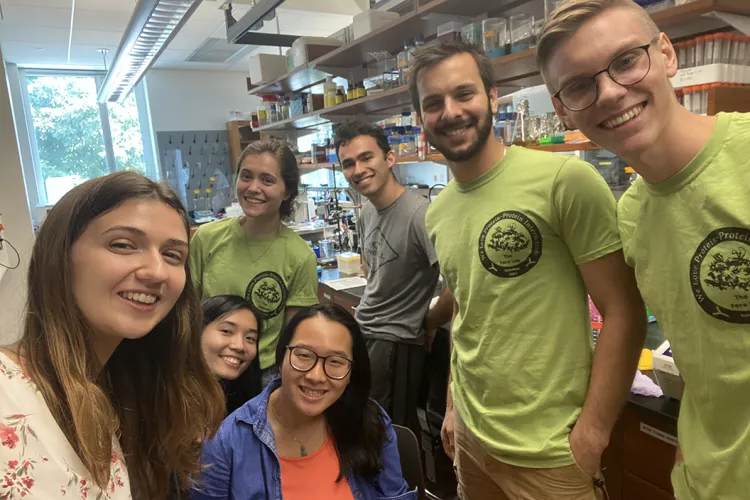
Collaborating this summer with biochemist Daniela Fera were: Emma Parker Miller ’22, Sabrina Lin ’23, Molly Erdman ’23, Tammy Pham ’24, Max Finkelstein ’22, Paul Seth ’23, Daniel Naargaard ’24.
Summer research at Swarthmore had a more familiar rhythm this year, with many of the more than 300 students undertaking research projects doing so on campus. But whether students were collaborating with faculty in person or doing so virtually, their experiences brimmed with hands-on work and discovery. The experience benefited not only the students, but also their academic departments and fields at large. Here, a group of students and faculty members share some of the highlights of their summer research.
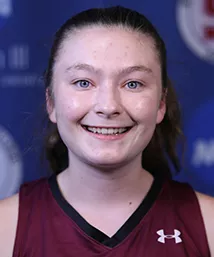
Marion Carr ’22
, Honors economics major from Amherst, Mass.
Research focus: The high unemployment rates in South Africa with Gil and Frank Mustin Professor of Economics Steve O’Connell, through a Lenfest Student Fellowship.
“While analyzing the South African labor market and how to combat high unemployment rates in the country, I realized the value of my education at Swarthmore and how it fueled my passion to pursue economics at a higher level in graduate school. With support from Professor O'Connell, I was able to see tangible results from the theory and modeling I learned in my Economic Development course. The most memorable moment was after spending a significant amount of time on applying a vector autoregressive approach, we were finally able to get mathematical results for South Africa that seem consistent with the existing scholarship and theory in the field. This was a moment where I was able to connect economic theory, mathematical modeling, and potential real-world applications for the work that I was doing.”
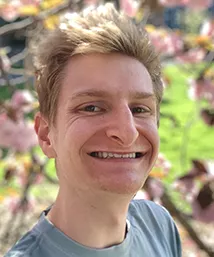
, mathematics and computer science major from Eau Claire, Wis.
Research focus: The neural dynamics of high-frequency coincidence detection in the bird sound localization circuit with Assistant Professor of Mathematics & Statistics Josh Goldwyn, through a grant Goldwyn received from the National Science Foundation (NSF).
“One thing I greatly appreciate about Swarthmore is the sense of encouragement to explore multiple fields and learn cross-curricularly. The research experience and mentorship I received exemplified this attitude toward interdisciplinary study. I worked with Professor Goldwyn on a project involving computational neural modeling in barn owls' brainstems. As a math and computer science double major, I highly valued the opportunities to employ the technical software design and data management skills I've learned in my computer science classes to our study in mathematics. I also feel grateful to have been exposed to the fascinating world of biology and neuroscience along the way. Additionally, I loved the peer learning and sense of community Swarthmore faculty and staff fostered through various presentation events and opportunities.”
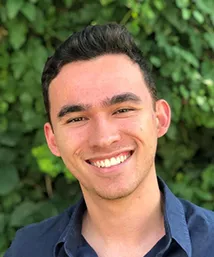
, Honors biochemistry and mathematics special major from Singapore
Research focus: Characterizing how an antibody binds to the HIV viral spike with Assistant Professor of Biochemistry Daniela Fera, through a Swarthmore College Honors Fellowship.
“While I loved the research and aim to pursue related work in graduate school, one of the best parts of my summer was the warm, tight-knit, wonderful community that developed in our lab throughout the ten weeks. I looked forward to every day in the lab, because the science was fascinating and because I would smile and laugh as I worked alongside my labmates. Our summer ended with Professor Fera treating us to dinner in Philly; we piled into a minivan to sing road trip-themed songs there and back (John Denver’s “Take Me Home, Country Roads” was the clear favorite). I’m no singer, but that wasn’t the focus — it was about us being together and feeling close enough to be foolish among friends. I am grateful to Professor Fera for developing us into a fantastic community of young scientists.”
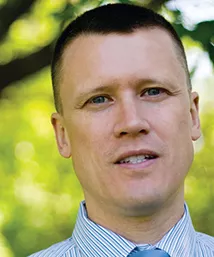
conducted research with several students this summer
Research focus: A range of subjects within the field of linguistics, through, in part, a grant he received from the National Science Foundation.
“Tshering Dorji ’23 conducted research in her home city of Thimpu, Bhutan. She interviewed herbalists, healers, and other plant specialists to explore Bhutanese indigenous expertise in using plants for healing and well-being. Dylan Charter ’23, working from home (Jericho, Vt.), explored environmental knowledge among the Nenets people who herd reindeer in the Russian Arctic. He used his knowledge of Russian to read ethnographic literature, and compiled a portrait of how this threatened culture relates to nature. This work is in preparation for my Explorers Club and Discovery Channel funded expedition to the Arctic this fall. It’s important for students to apply skills they are learning in the classroom — for example, how to conduct an ethnographic interview — to work remotely or directly with indigenous communities around the world. This work can help visibilize marginalized communities, and also diversifies our curriculum.”
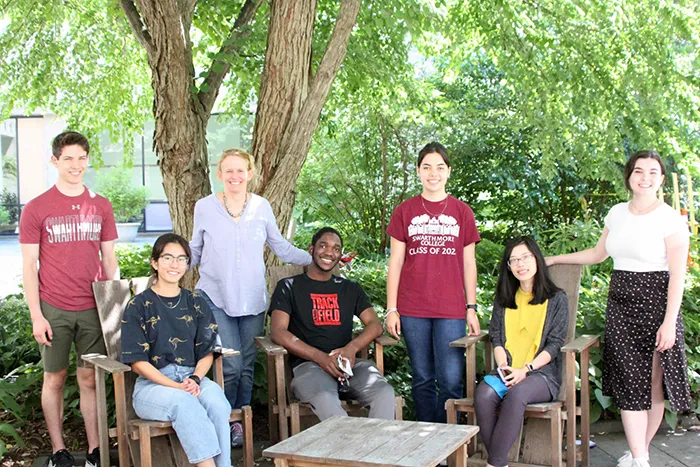
This summer’s Howard Lab (from left): Caleb Porter ’24, Scout Hayashi ’22, Professor of Chemistry Kathleen Howard, Tyrique Arthur ’24, Sophie Engels '23, Aye Kyaw '22 and Chayanne Petit '23. Photo by Kelly Ambruso, Chemistry Lab Instructor.
Professor of Chemistry Kathleen Howard, supervised six Swarthmore students on campus this summer
Research focus: How influenza viruses assemble and then bud from infected cells, through, in part, a grant she received from the National Institutes of Health (NIH).
“It took some pluck to dust off the equipment and start back up after the lab was unused for a year, but the students were determined to push the science forward and tackled challenges one by one. The summer exceeded my expectations in terms of productivity of research results and growth in each student. We were able to biochemically synthesize and characterize the interaction of two key players in viral assembly: M1 protein and membrane-bound M2 protein. It was a true team effort, with a subgroup working on M1 production, another designing a model membrane platform for sample preparation, and everyone contributing results from a battery of biophysical tools to help build a model for how M1 and M2 interact. The long term implications of this work could offer a significant potential for a new generation of antivirals.”
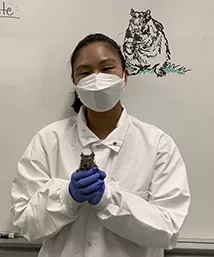
, biology and educational studies special major from Weston, Fla.
Research focus: The pre- and post-natal development of Octodon degus pups to mitigate the stress of parent-child separation with Assistant Professor of Biology Carolyn Bauer, through a Eugene M. Lang Summer Research Fellowship.
“A top takeaway from my experience participating in biology research was the people; I could not have asked for a better group of people to work with day in and day out. Working with Professor Bauer was such a privilege. She was dedicated to engaging our perspectives into the research and really giving us full range to take responsibility during the experience. She not only cares about us in the sphere of her research but she is interested in familiarizing us with our future careers. As a potential OB/GYN, she had taken the time to show and teach me the reproductive health and pregnancy of a degu. I really appreciate her efforts to give me such eye-opening experiences as an undergraduate student.”
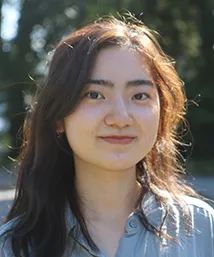
, Honors sociology & anthropology special major from China
Research focus: The recent history of Gorongosa National Park in Central Mozambique with Associate Professor and Chair of Anthropology Christy Schuetze, through a William L. Huganir Summer Research Stipend on Population Issues.
“Our research focus was on ontological politics of land in central Mozambique, specifically the Gorongosa National Park. This research experience has been exciting and exceedingly rewarding, and collaborating (in person!) with Professor Schuetze made this experience very engaging and meaningful. While we were unable to travel to Mozambique, I still truly enjoy listening to Professor Schuetze sharing her encounters and field-working stories in Mozambique and perspectives on environmentalism and other relevant topics. Early on in the research, we read through and reviewed scholarships on political ontology, pluriverse, and cosmopolitics. An exposure to these more recent subjects and debates in anthropology broadened my outlook on the field. I also benefited from coding, a qualitative data analysis technique, which I now feel more comfortable implementing in my future research.”
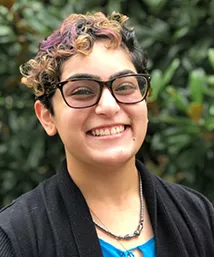
, gender and sexuality studies special major from Trenton, N.J.
Research focus: Race, gender, and disability in modern video gaming with Professor and Section Head of Russian Sibelan Forrester, through a Mellon Interdisciplinary Humanistic Summer Award.
“My top takeaway was being introduced to the subfield of queer game studies, which I was unaware of until I spoke with professors and alumni from the Film & Media Studies department. It’s exhilarating to think that a combination of my biggest areas of interest formed a plausible field for future academic inquiry, and the sheer volume of ideas that we were able to brainstorm during our conversations led me to consider pursuing a fellowship to continue this thesis research after I graduate. I’m still deciding which ideas to include in the thesis and which to write as separate essays, but the fact that I had the freedom to continue generating ideas and trying out new methods instead of being constrained to the more traditional thesis research routes allows me to create a thesis that I’m genuinely passionate about on my own terms.”
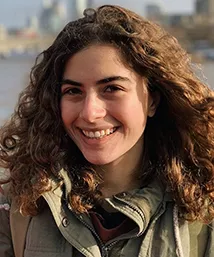
, Honors biology major from Minnetonka, Minn.
Research focus: The localization and fate of intron retained mRNA transcripts in the heat shock response of Arabidopsis with Professor and Chair of Biology Nick Kaplinsky, through a Swarthmore College Honors Fellowship.
“One of my big takeaways from research this summer is an increased confidence in my ability to problem solve and persevere when experiments aren't working. After trying to implement a new protocol this summer and repeating and troubleshooting it, I reached a point where I was consistently having issues, and my professor and I decided to put it aside and return to other experiments. While it was definitely at least a little frustrating to not get results or outputs from something I put a lot of time into, I learned a lot from the process of trying to get this protocol running, and I solidified other priorities within my research. I feel more assured in knowing that I still enjoy doing research and find it rewarding even when I’m not getting clean, exciting results."
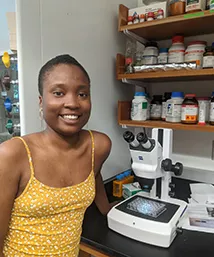
worked with six students, including Zahara Martinez '23 (left) on campus this summer
Research focus: Unusual DNA structures, through, in part, a grant she received from the National Institutes of Health (NIH).
“We were truly grateful for this opportunity of being together and working together. Some of the students had absolutely no hands-on lab experience, since they had all their lab courses in a Zoom format," says Yatsunyk.
"So, working in the lab during 10 weeks of summer in close collaboration with the faculty and their peers really helped them to gain experience they could never have in an online world. While being in person was fantastic, we have also benefited from continuation of some Zoom activities, one of which was an international conference on the topic of my lab: unusual DNA structures. We held a weekly journal club and attended two talks every week where world experts shared with us their cutting-edge research findings. We also reinstated the Chem Social, an old tradition of midday weekly snacks prepared by different research groups where students get to socialize and discuss their work.”



